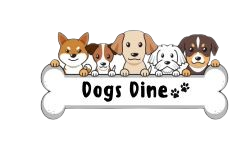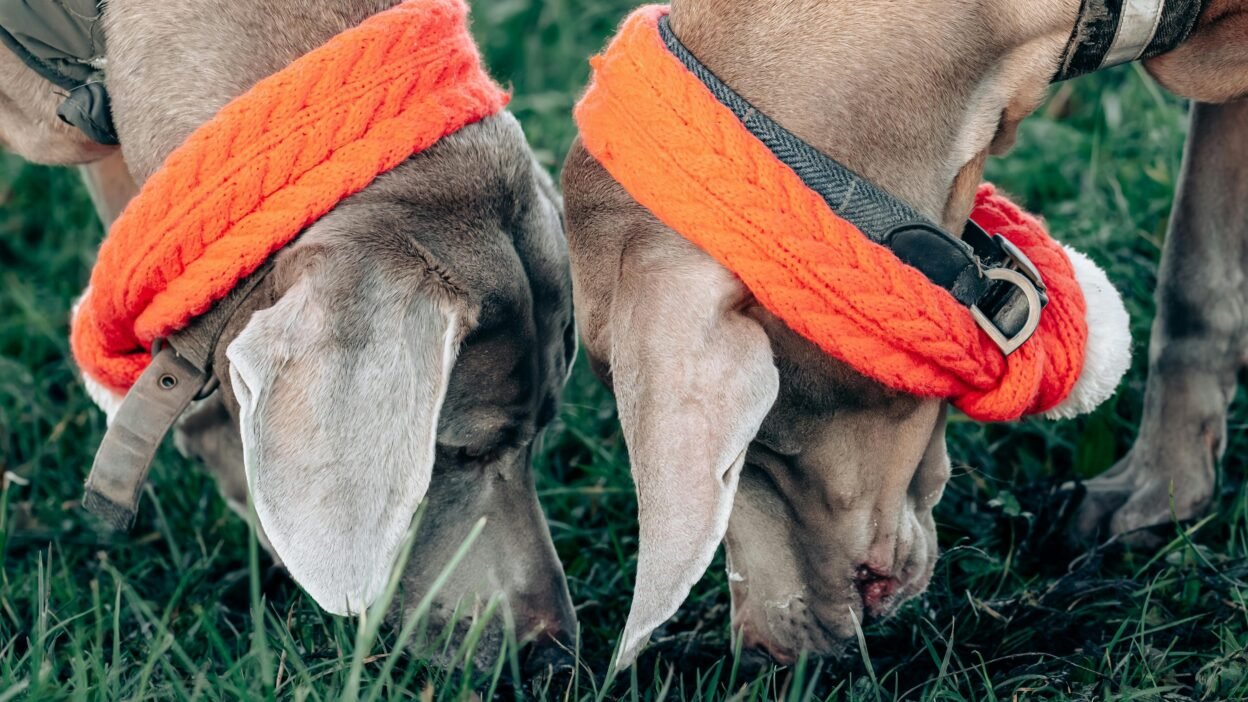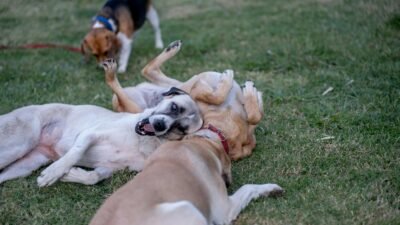Introduction
One of the maximum difficult behaviors canine proprietors come upon is their puppy munching on grass. Despite being carnivores through nature, many puppies appear interested in blades of grass, chewing them with obvious purpose. This addiction increases questions: Is it dangerous? Does it sign a fitness problem? Or is it really a quirk?
The fact is that grass consuming is a herbal and frequently innocent conduct for puppies. While its reasons are not completely understood, numerous theories offer perception into why puppies have interaction on this abnormal addiction. This article explores the capability motives at the back of grass intake and gives steering on while to intervene.
Instinctual Behavior From Their Ancestry
Dogs, like their wild ancestors, are opportunistic eaters. Wolves, coyotes, and foxes devour plant cloth as a part of their food regimen, frequently eating grasses discovered withinside the stomachs in their prey or without delay consuming flora for its dietary value.
This intuition persists in home puppies, despite the fact that they rely upon industrial puppy meals. By consuming grass, they’ll be satisfying a herbal force to diversify their food regimen.
Dietary Fiber and Nutritional Needs
Grass incorporates fiber, which aids digestion and promotes healthful bowel movements. Dogs would possibly devour grass if they may be experiencing gastrointestinal pain or if their food regimen lacks enough fiber.
Signs of fiber deficiency include:
- Irregular bowel movements.
- Difficulty passing stools.
- Increased preference to chunk on non-meals items.
Offering high-fiber canine ingredients or dietary supplements may also lessen grass-consuming conduct if it is pushed through nutritional needs.
Soothing Digestive Discomfort
One of the maximum famous theories is that puppies devour grass to result in vomiting after they experience unwell. The tough texture of grass can worsen the belly lining, triggering a vomiting reflex that facilitates expel any irritants or toxins.
However, research display that vomiting frequently happens after grass intake however is not the number one cause puppies devour it. In many cases, they really chunk and digest the grass with out regurgitation.
Boredom or Attention-Seeking Behavior
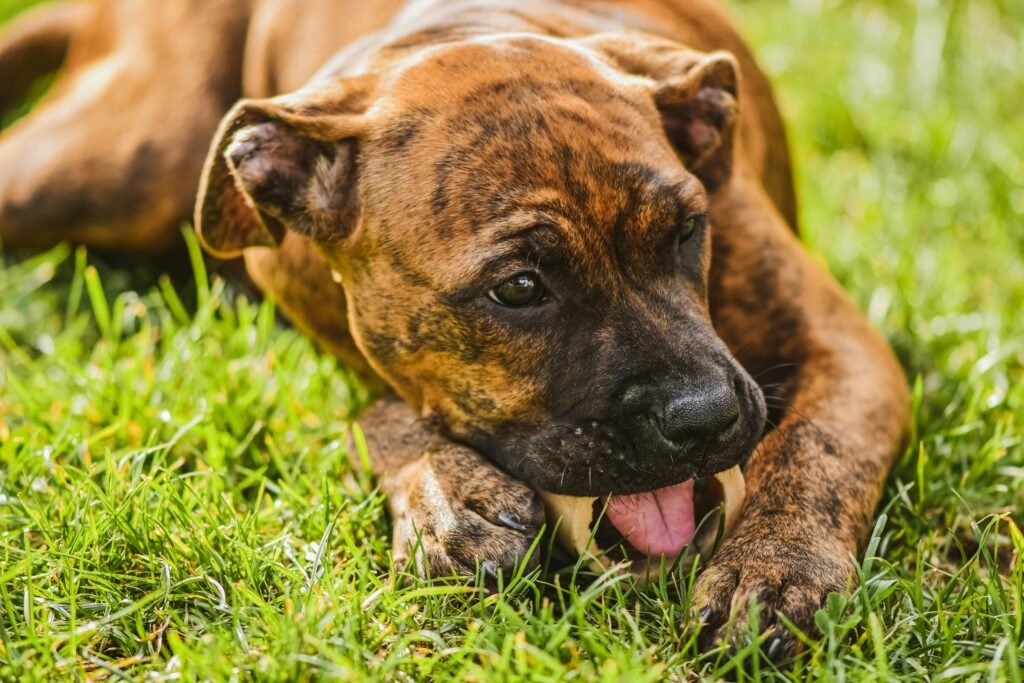
Some puppies devour grass really due to the fact it is there. If they may be left by myself for lengthy intervals or lack intellectual stimulation, chewing on grass turns into a manner to byskip the time.
In a few cases, puppies may also study that consuming grass attracts interest from their proprietors. If they may be looking for interplay or engagement, they’ll repeat the conduct every time they experience neglected.
Exploration and Curiosity
Dogs use their mouths to discover the world, and grass isn’t anyt any exception. Puppies, in unique, are liable to tasting the entirety they come upon. For a few puppies, munching on grass is much less approximately want and greater approximately pleasing curiosity.
A Taste for Grass
For sure puppies, consuming grass would possibly really be enjoyable. The texture, flavor, or heady fragrance of clean grass can attraction to their senses, similar to how human beings experience unique snacks.
If your canine now and again nibbles on grass and indicates no symptoms and symptoms of pain, this conduct is probable innocent and rooted in preference.
Stress or Anxiety
Stress or tension can cause compulsive behaviors in puppies, which include grass consuming. If your canine has a tendency to devour grass throughout thunderstorms, after a move, or in unusual environments, it is probably a coping mechanism.
Identifying and addressing the supply of your canine’s pressure can assist lessen this conduct.
When to Be Concerned
While grass consuming is generally innocent, sure conditions may also require interest:
Frequent Vomiting: If your canine vomits frequently after consuming grass, seek advice from a veterinarian to rule out underlying fitness troubles.
Excessive Grass Consumption: Persistent or immoderate grass consuming may also sign nutritional deficiencies or mental distress.
Toxic Exposure: Ensure the grass your canine eats hasn’t been dealt with with pesticides, herbicides, or fertilizers, which may be dangerous if ingested.
How to Manage Grass Eating
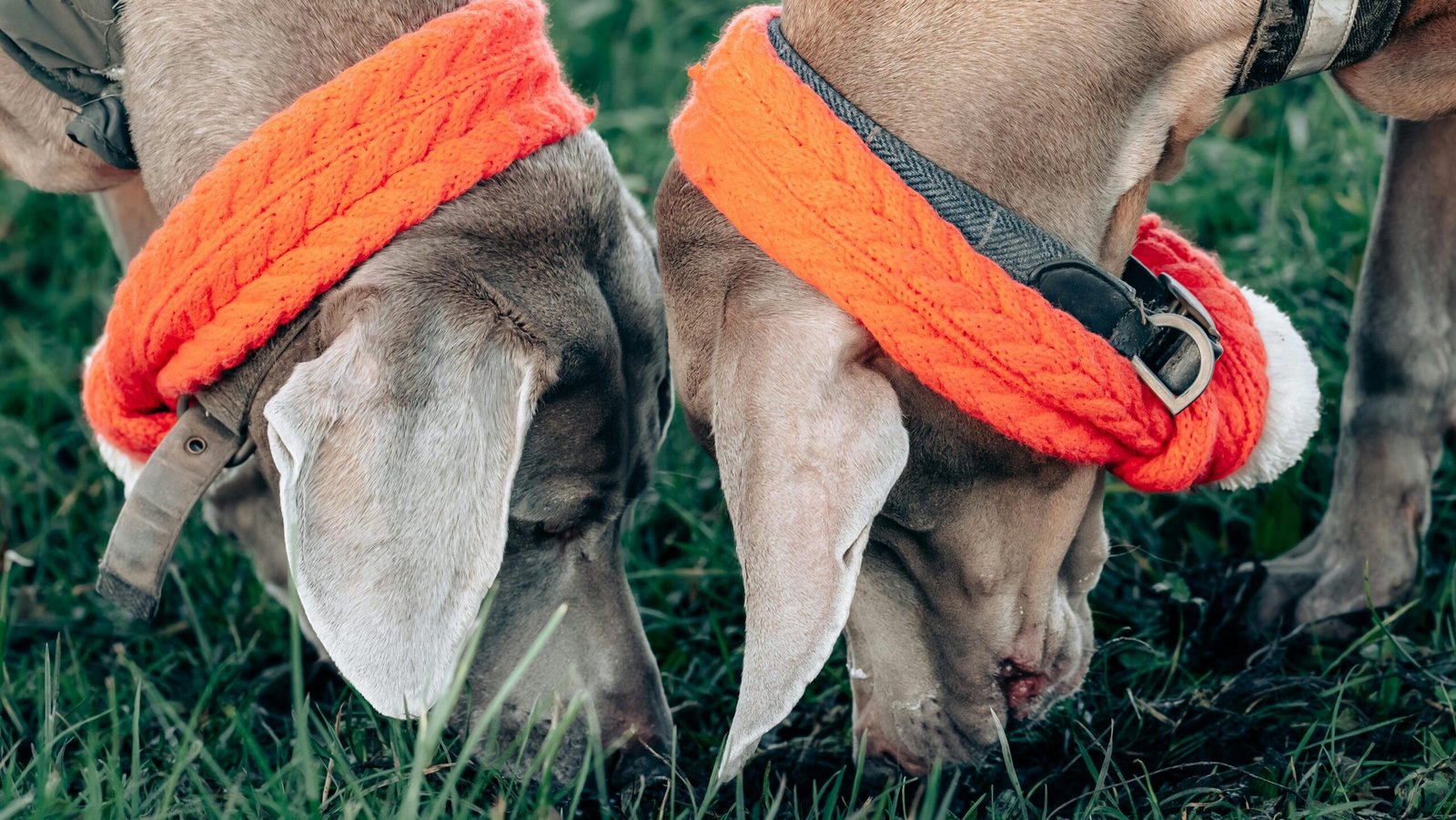
Provide a Balanced Diet
Ensure your canine’s meals incorporates all of the crucial nutrients, which include fiber, to fulfill their nutritional needs. Consult your veterinarian for guidelines on tremendous canine meals or dietary supplements.
Offer Safe Alternatives
Provide secure chunk toys, dental treats, or canine-pleasant greens like carrots to distract your canine from chewing grass.
Increase Mental Stimulation
Prevent boredom through incorporating normal walks, interactive playtime, and puzzle toys into your canine’s routine.
Monitor Their Environment
Keep a watch on in which your canine grazes. Avoid regions in which grass can be infected with chemical compounds or dangerous plants.
Conclusion
Grass consuming is a not unusualplace conduct amongst puppies, frequently rooted in intuition, nutritional needs, or easy curiosity. While it is commonly innocent, knowledge the motives at the back of it may assist proprietors cope with any underlying troubles and make sure their hairy pal remains healthful.
By supplying a balanced food regimen, secure alternatives, and a stimulating environment, you could limit needless grass consuming even as permitting your canine to specific their herbal behaviors. As lengthy as they may be happy, healthful, and supervised, an occasional nibble of grass may be simply any other quirk that makes your canine unique.
